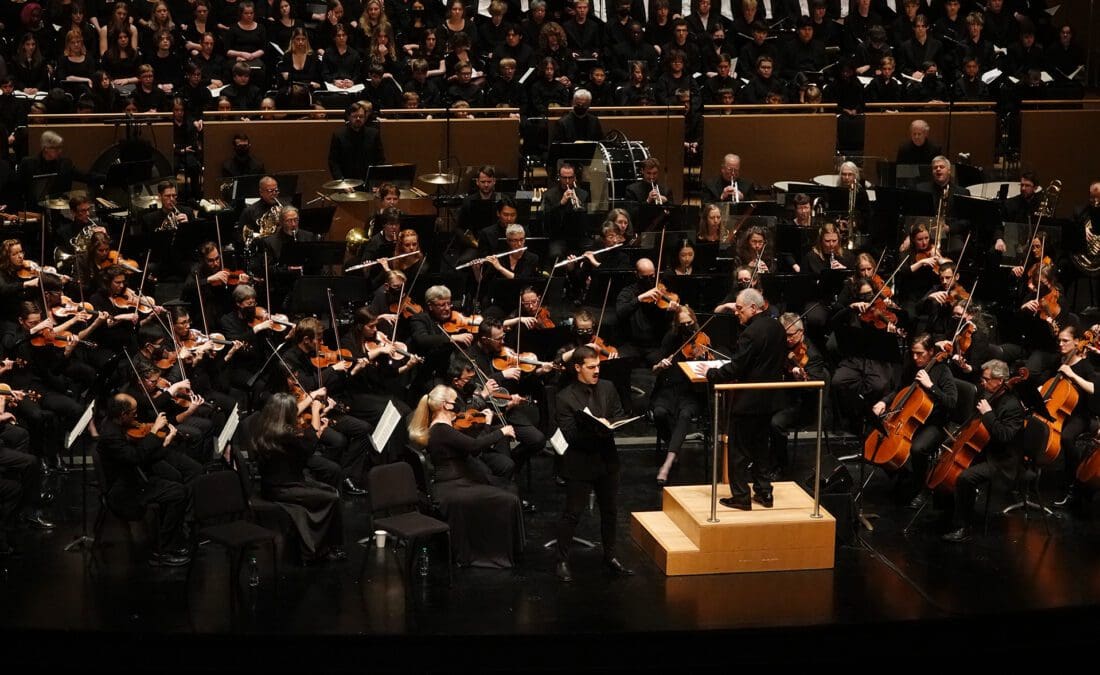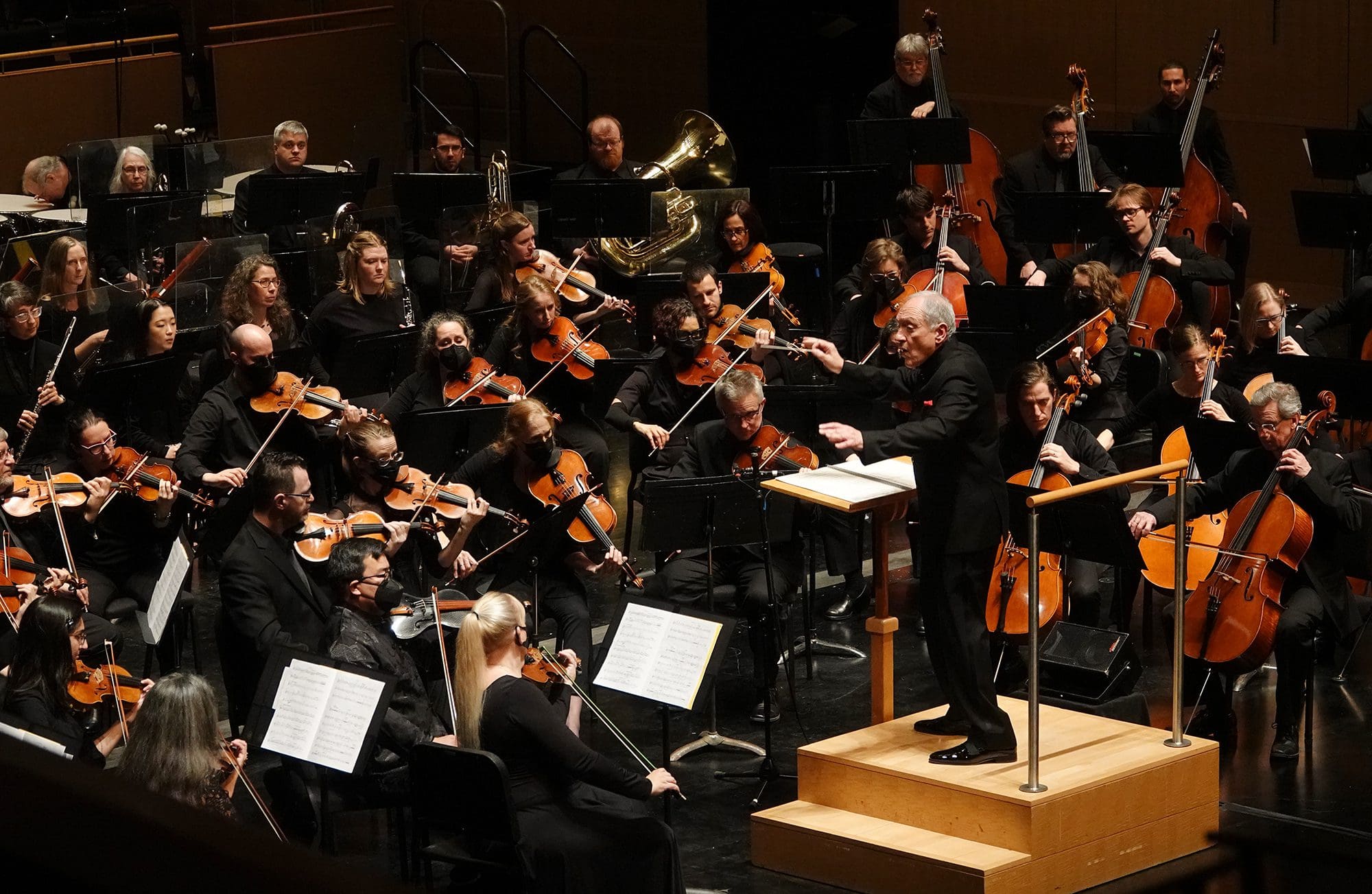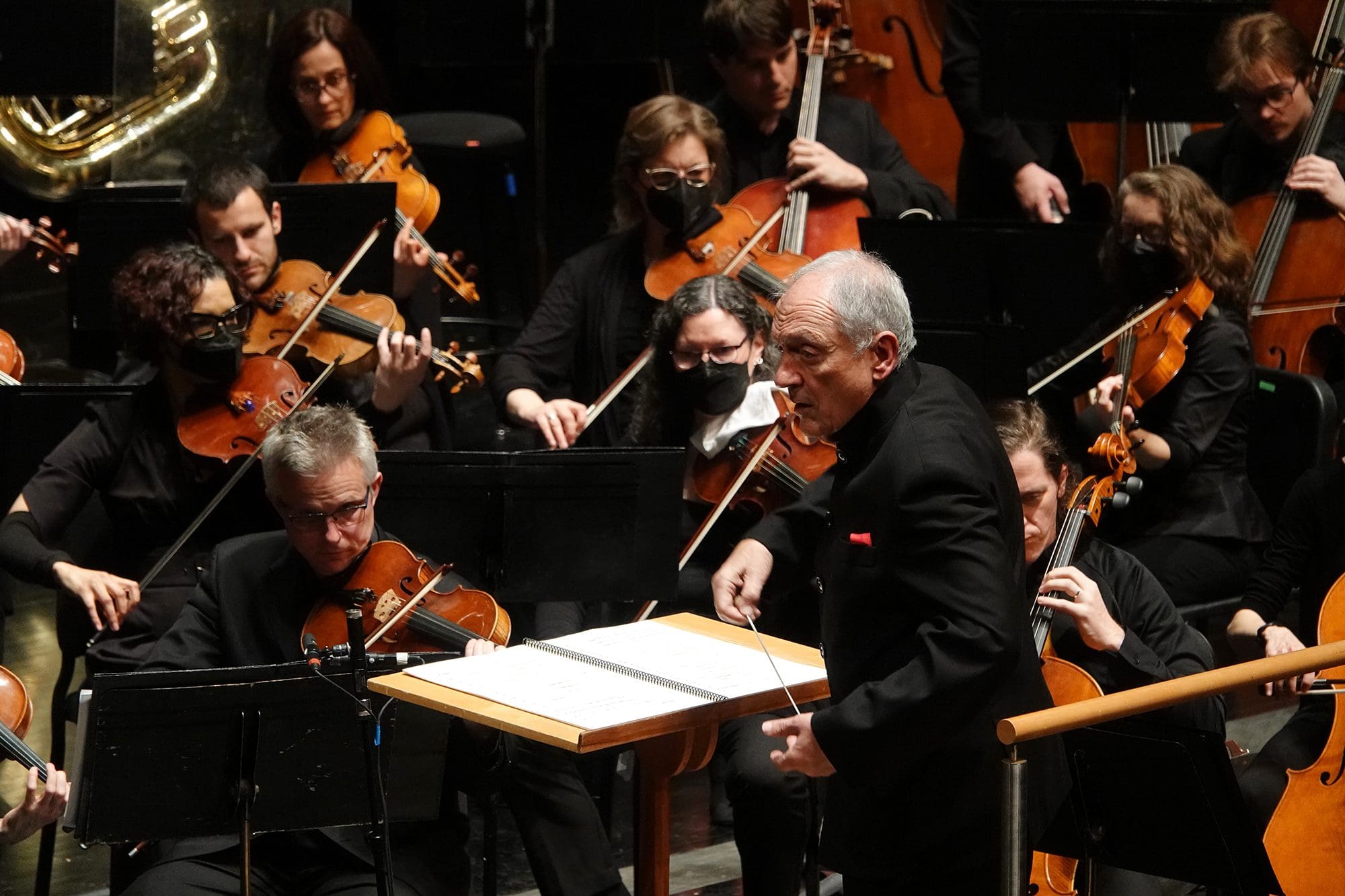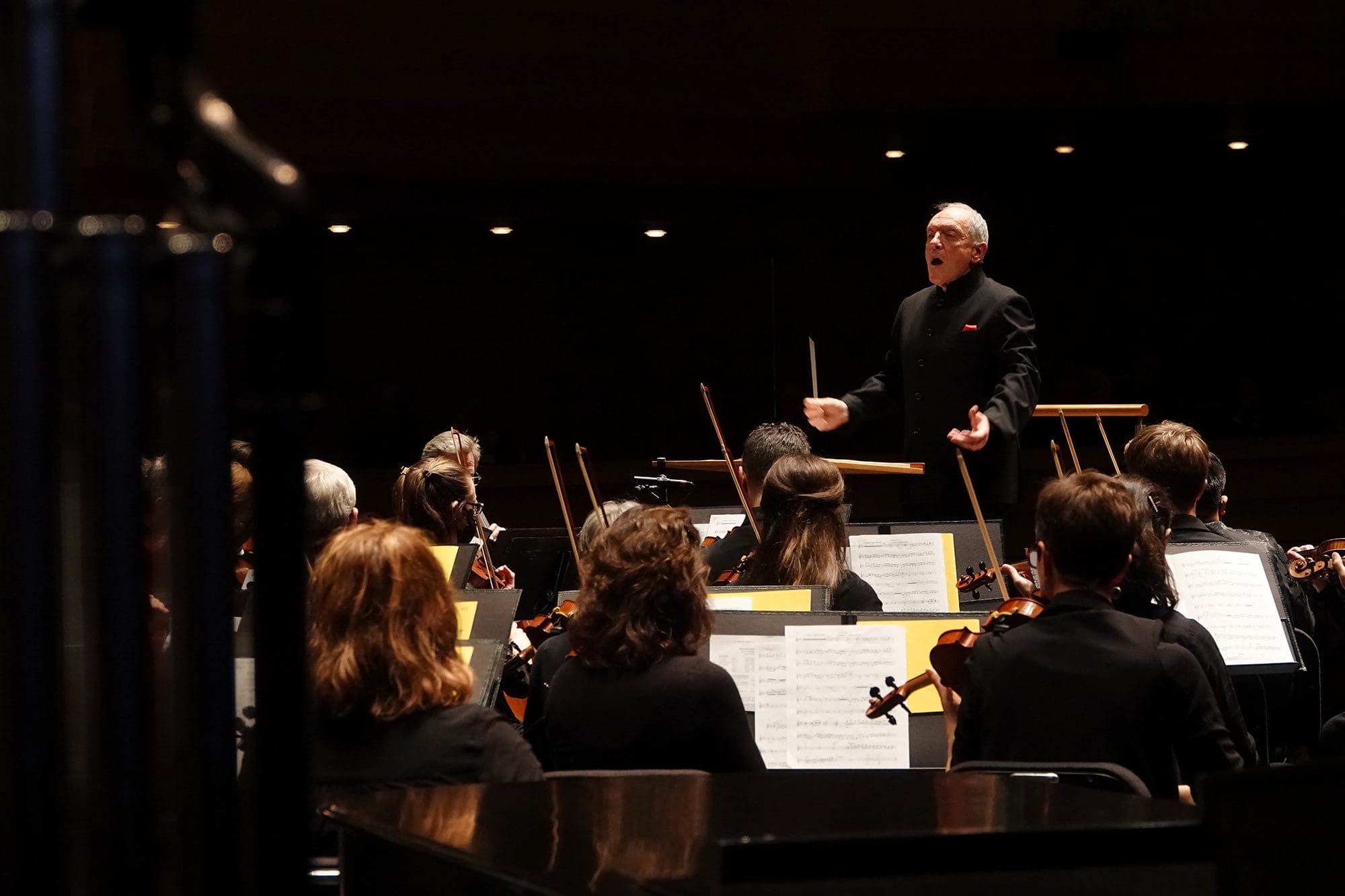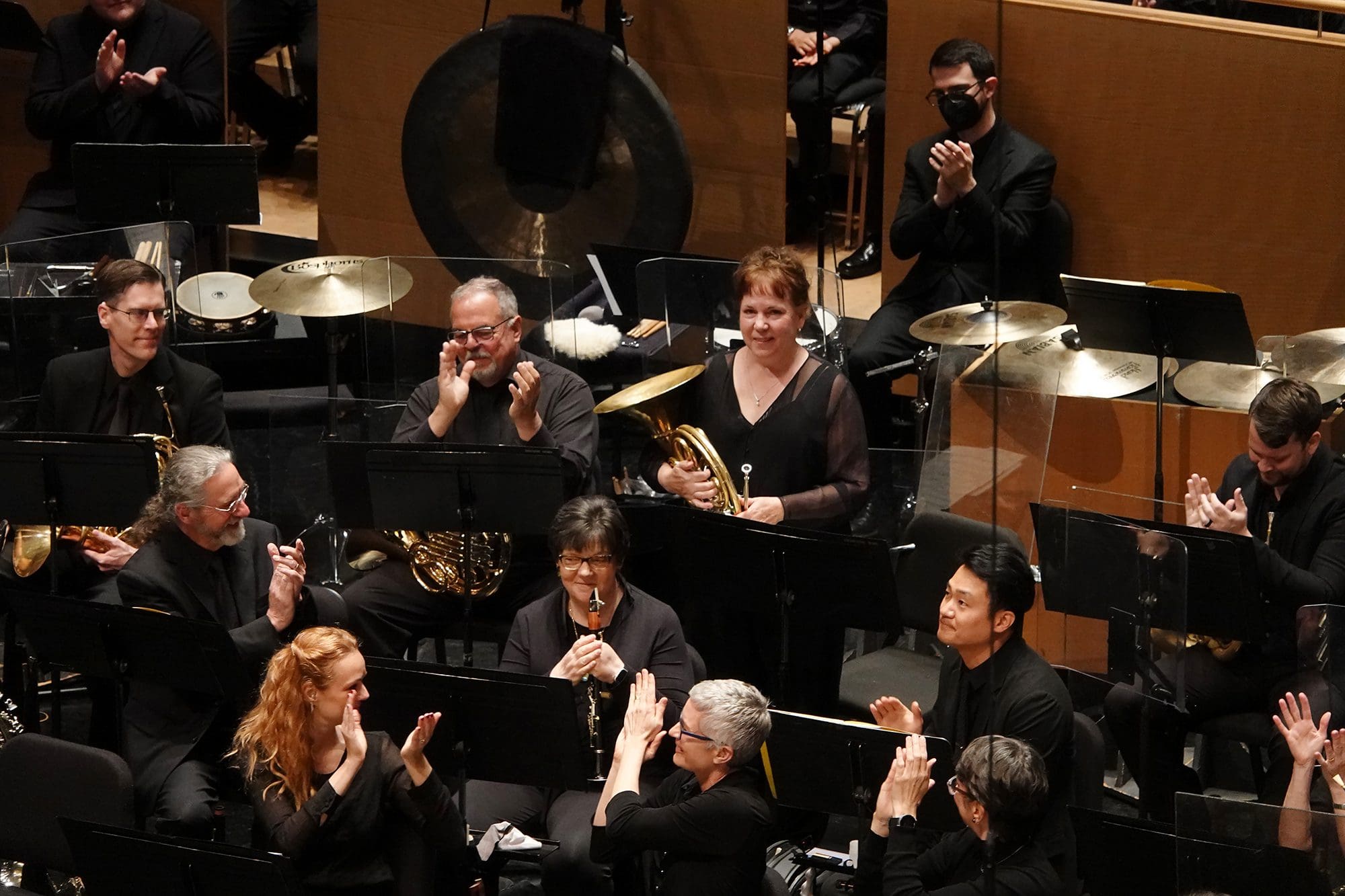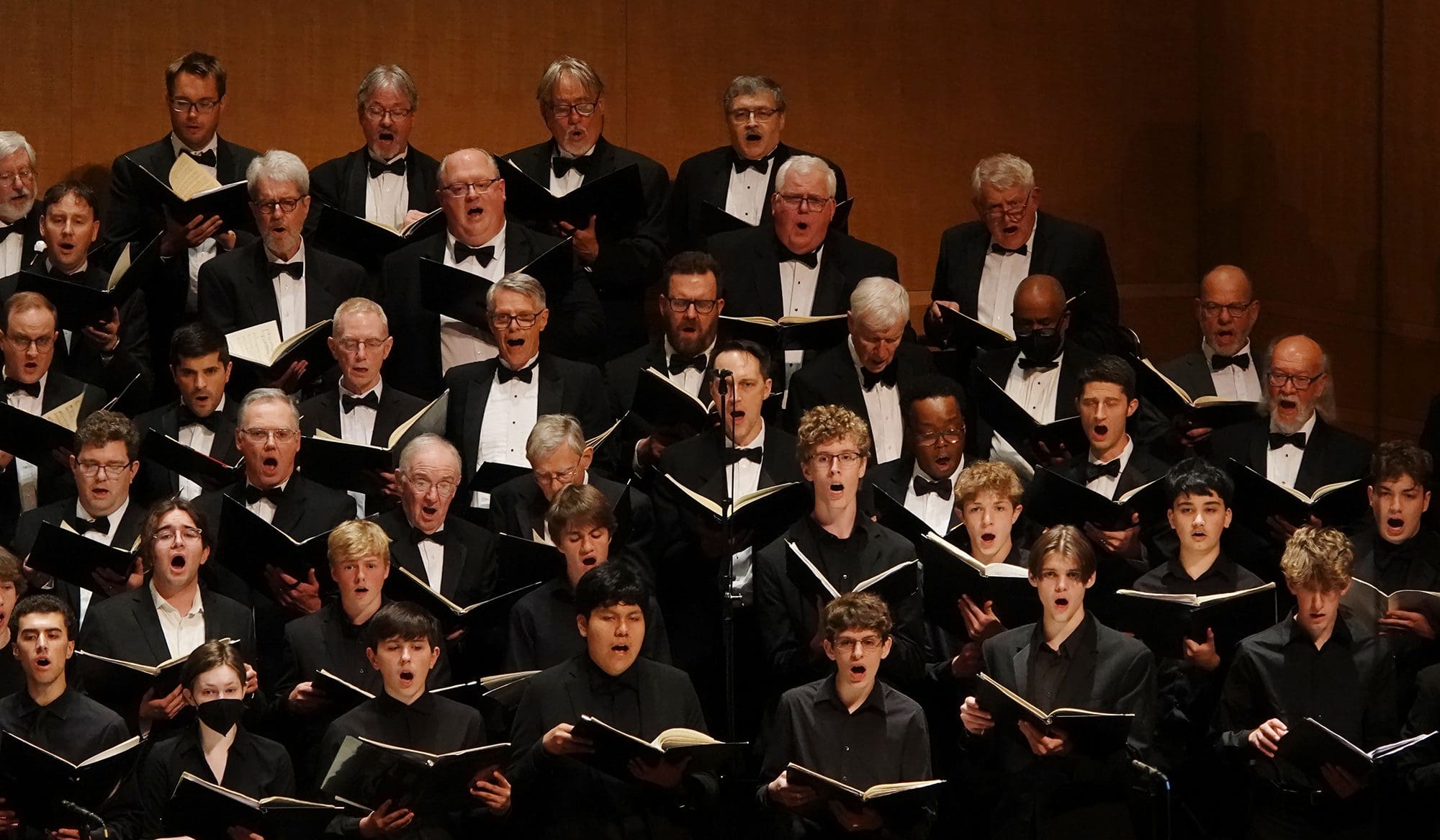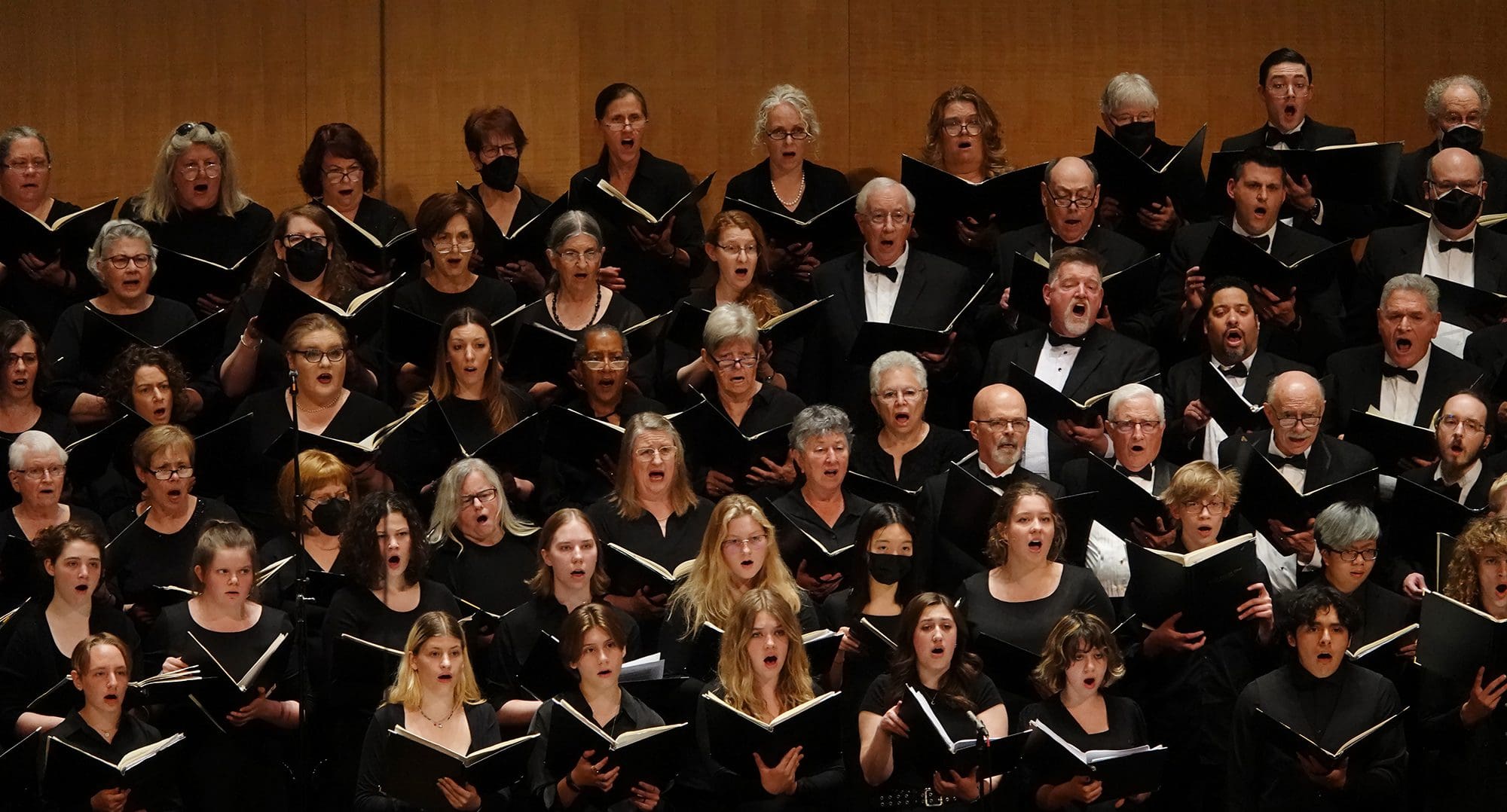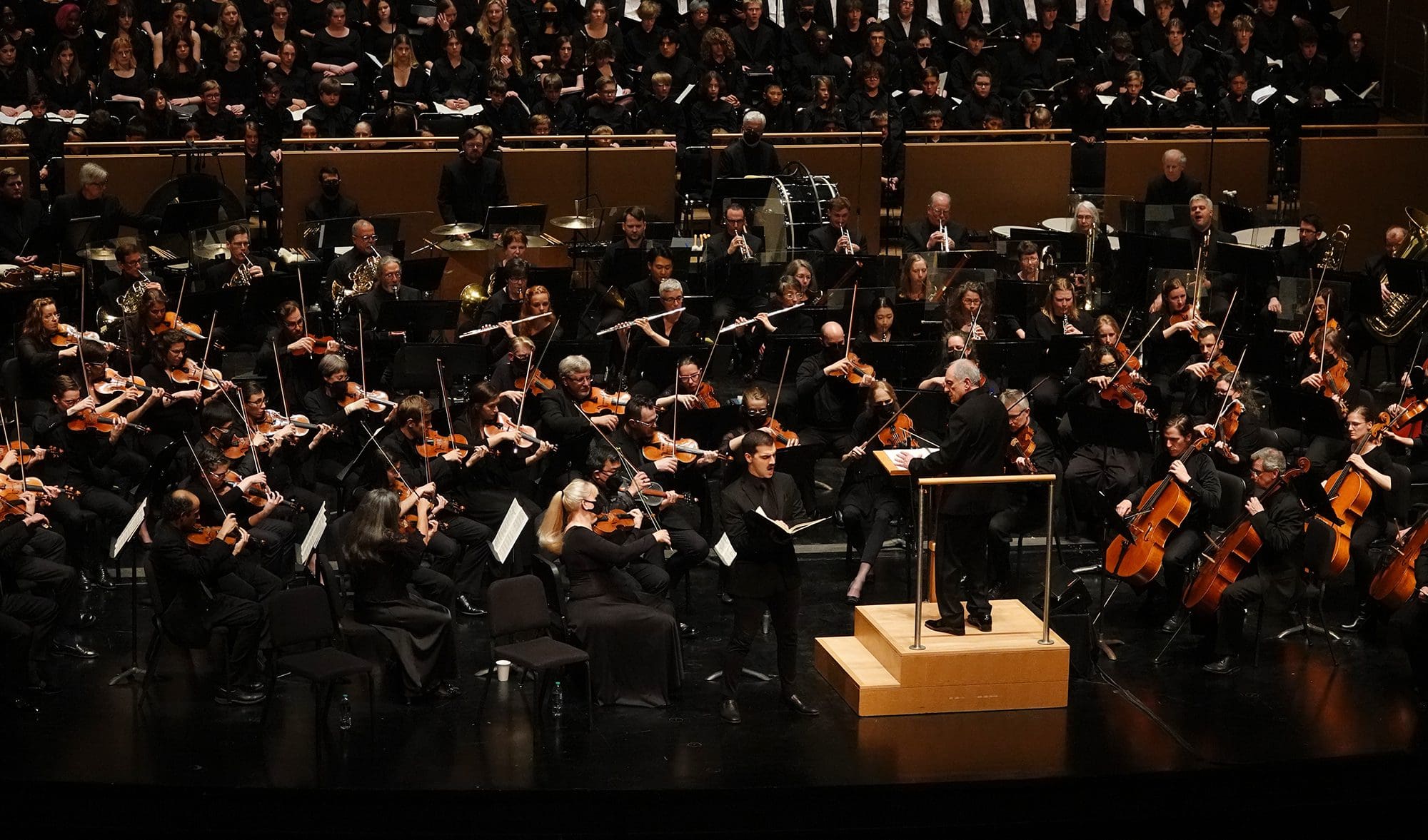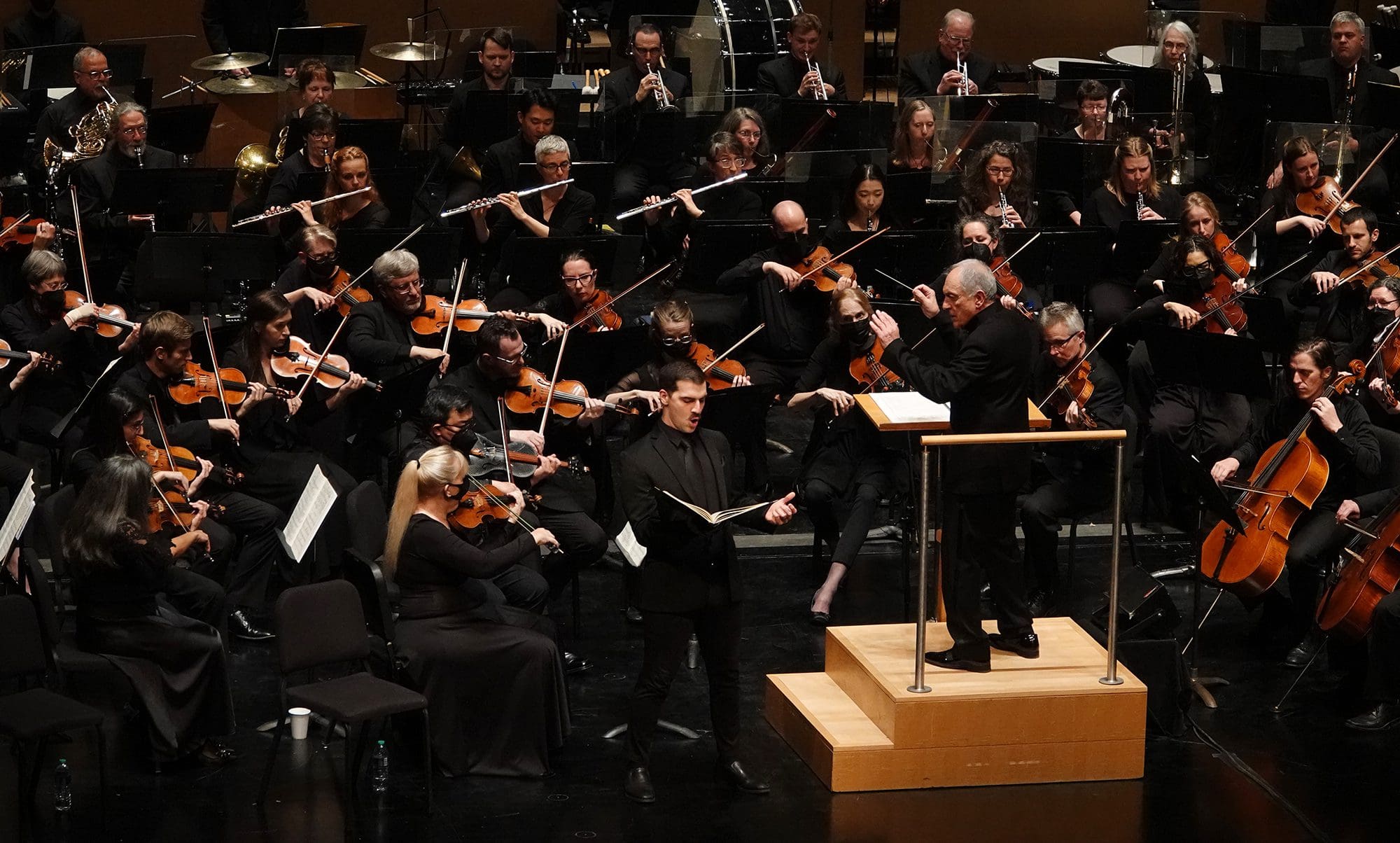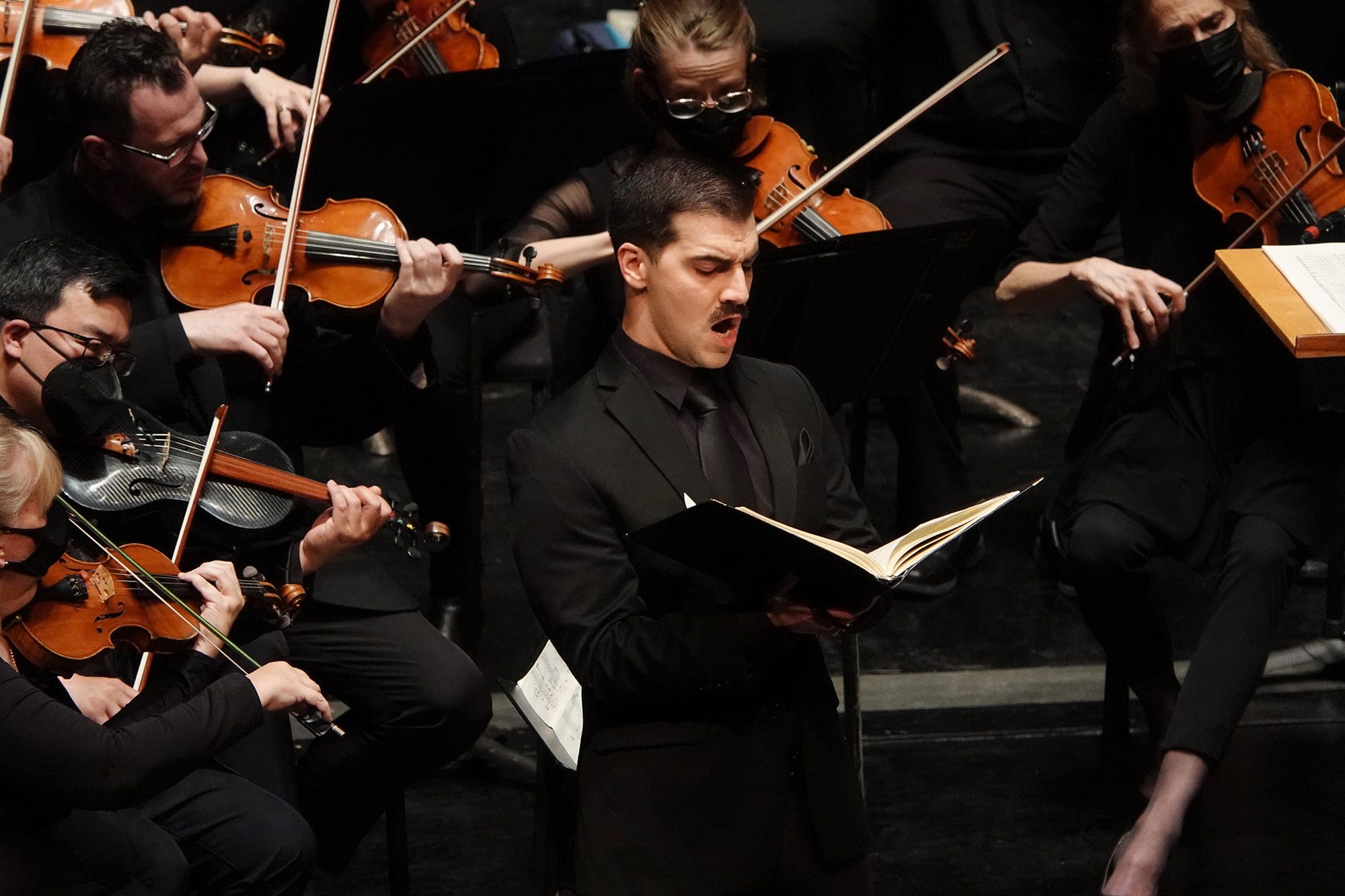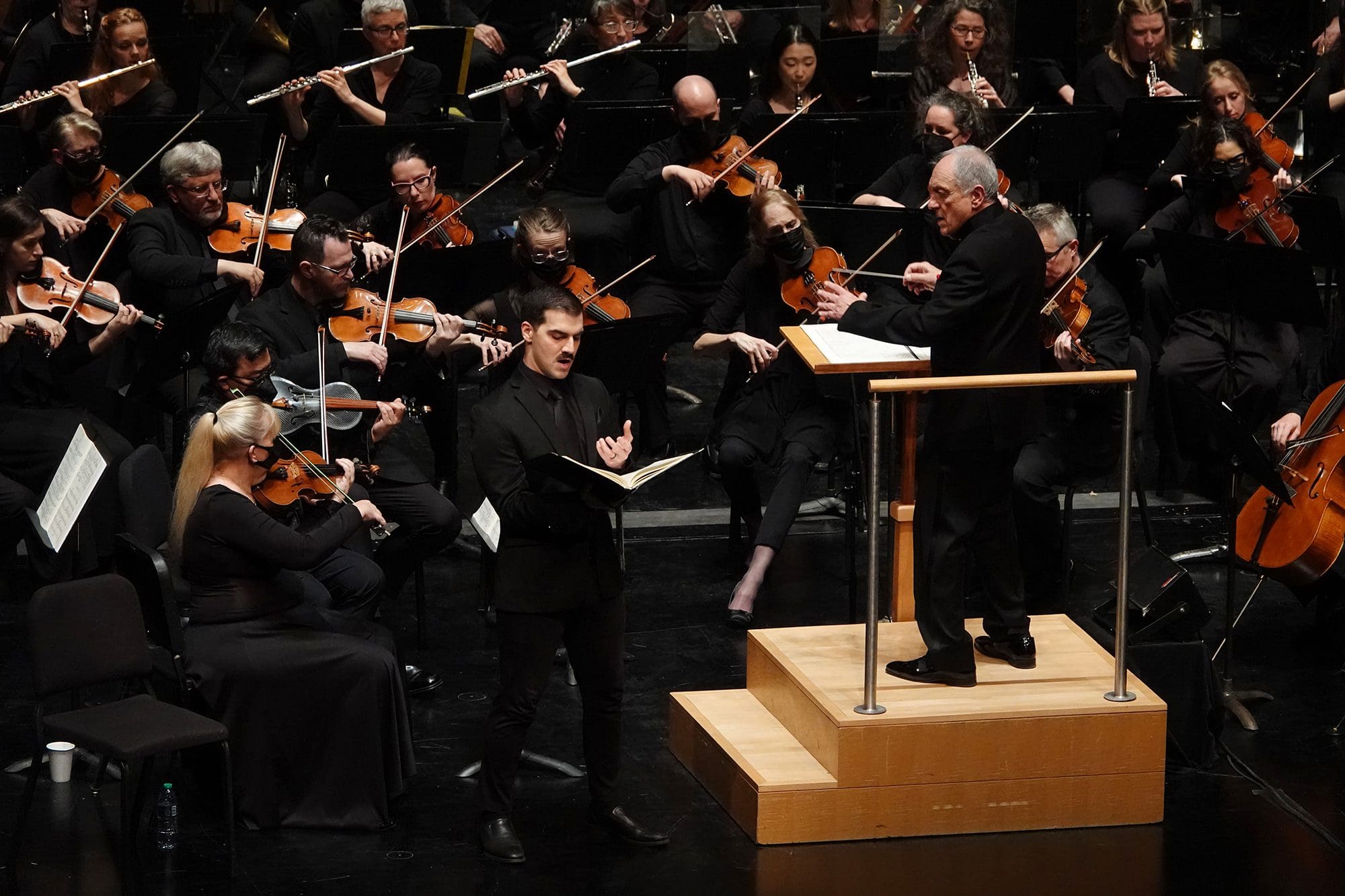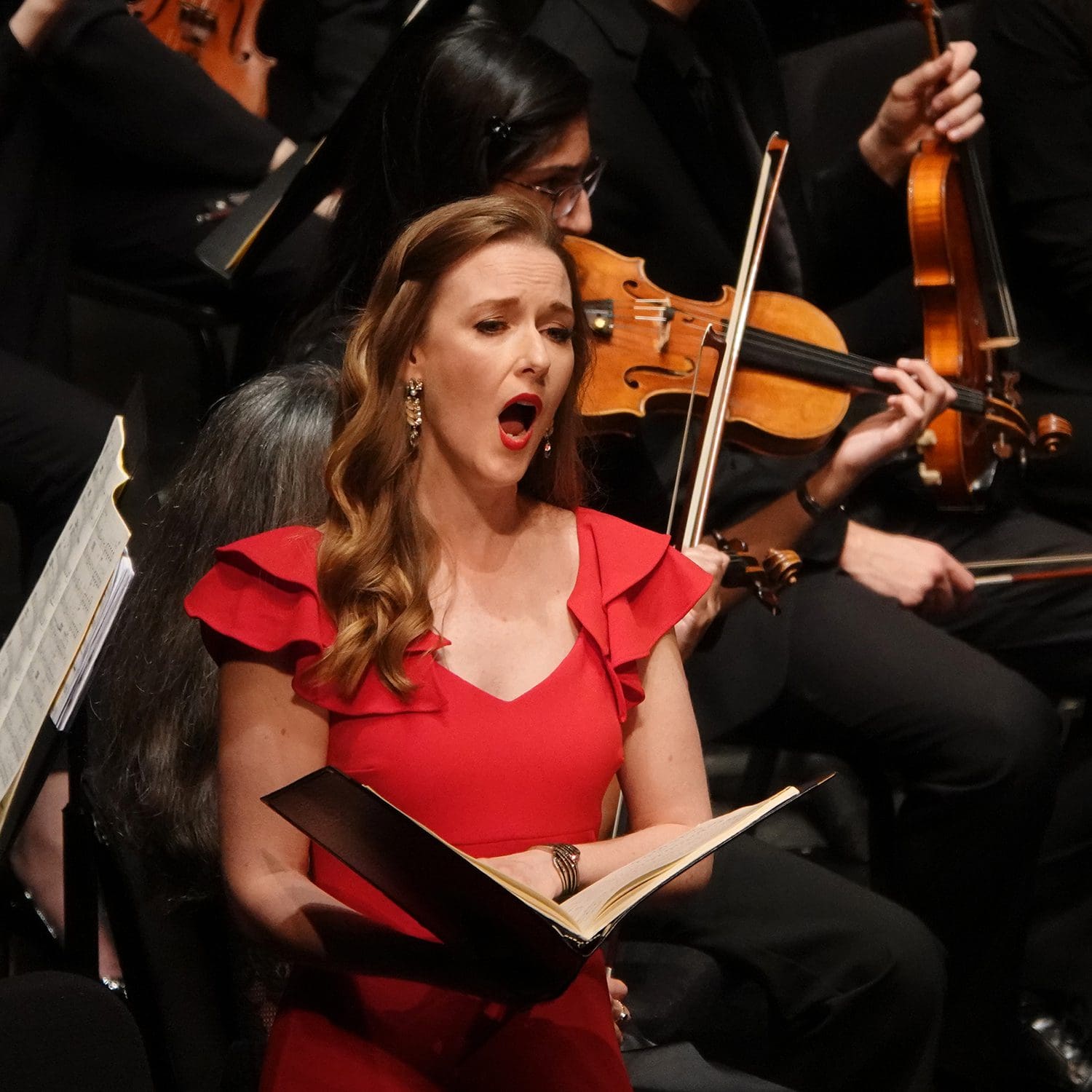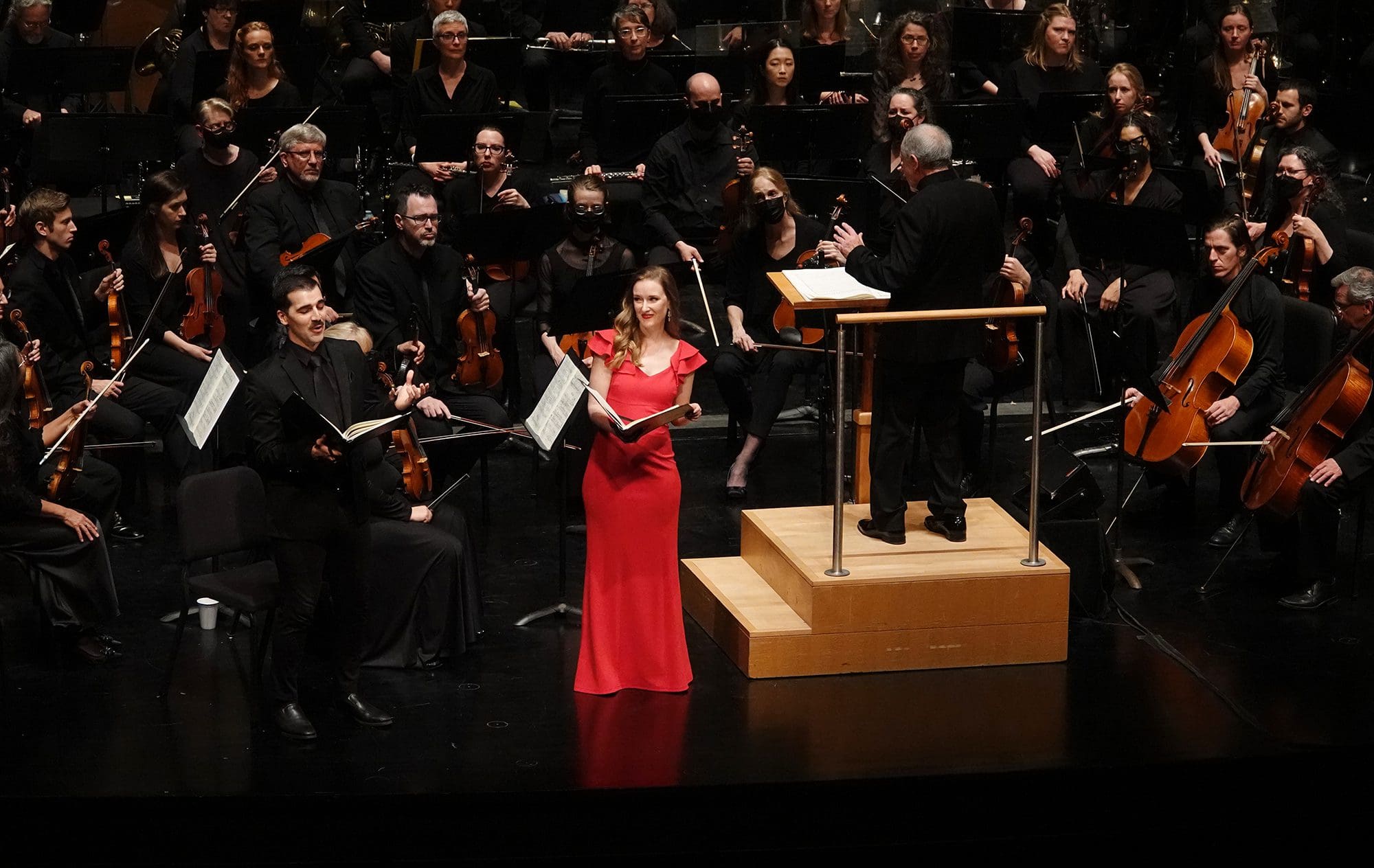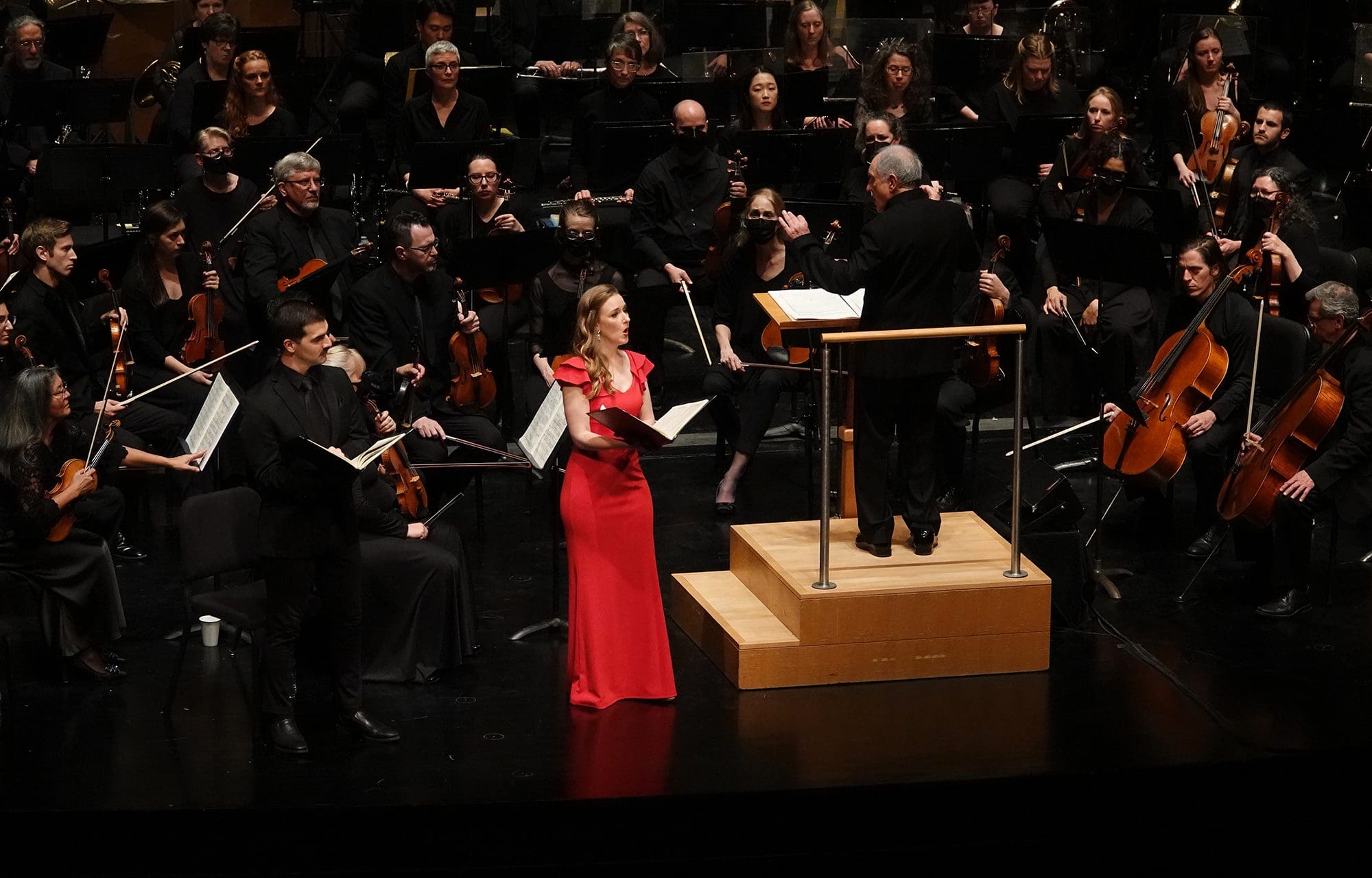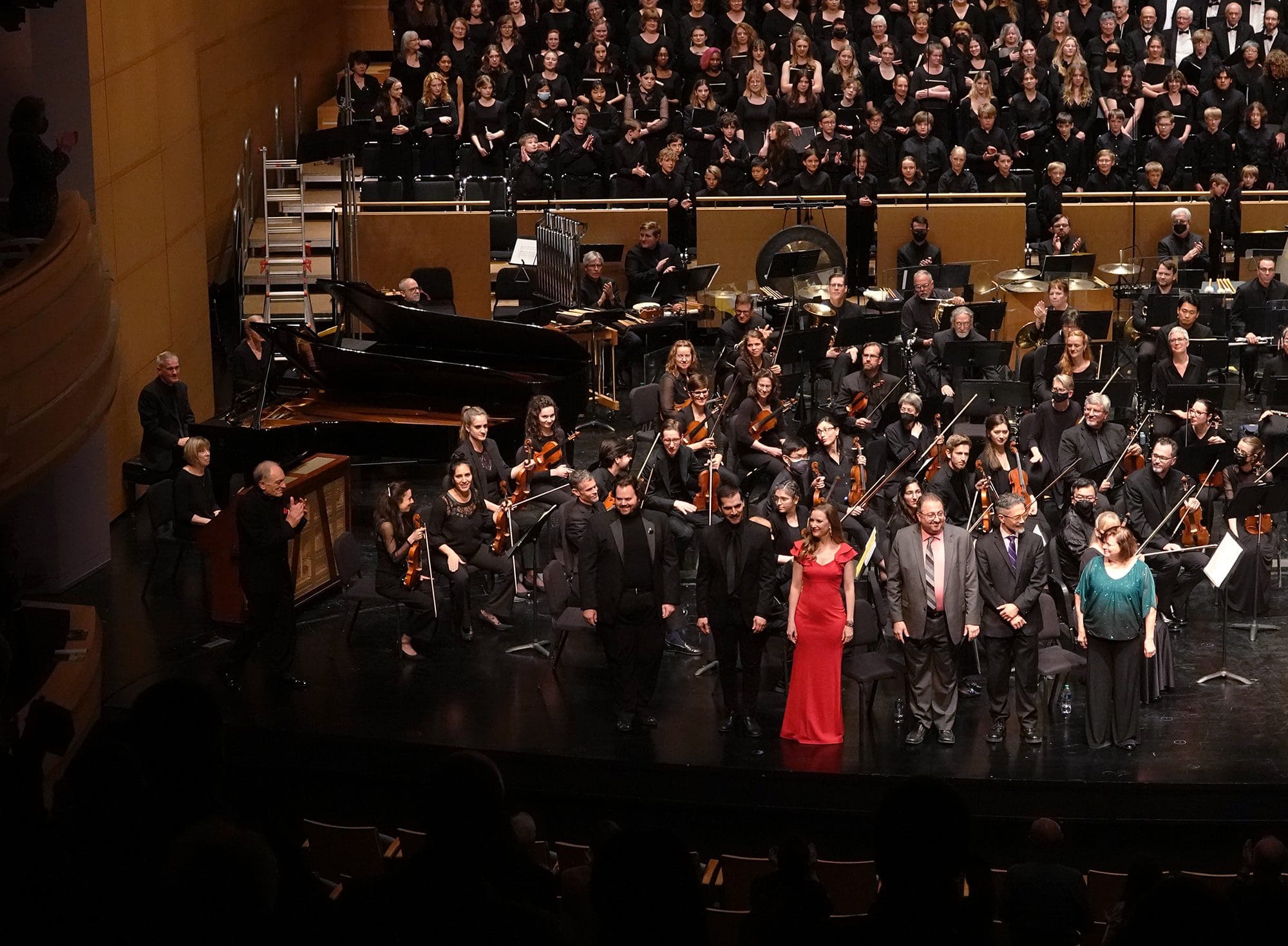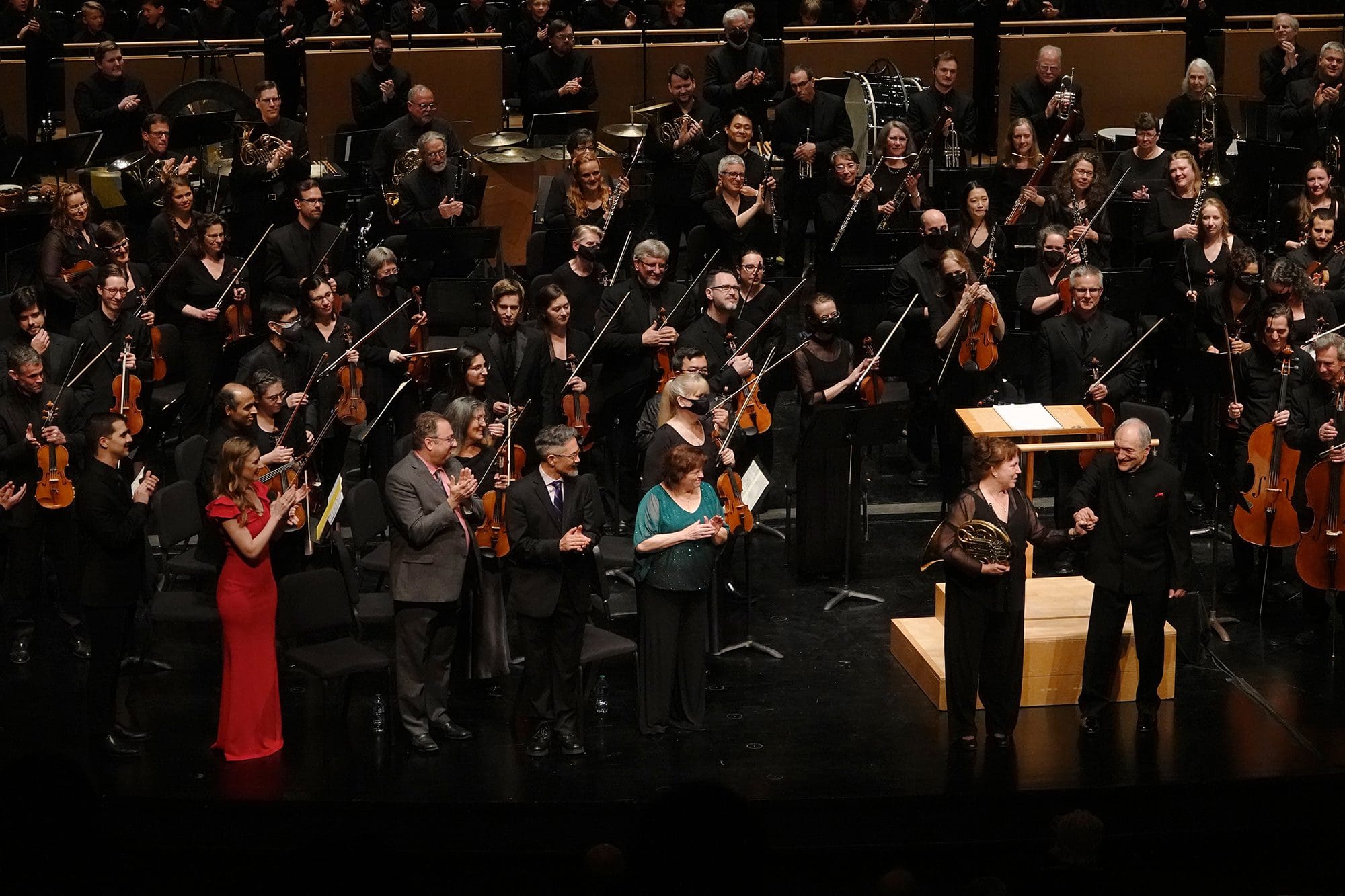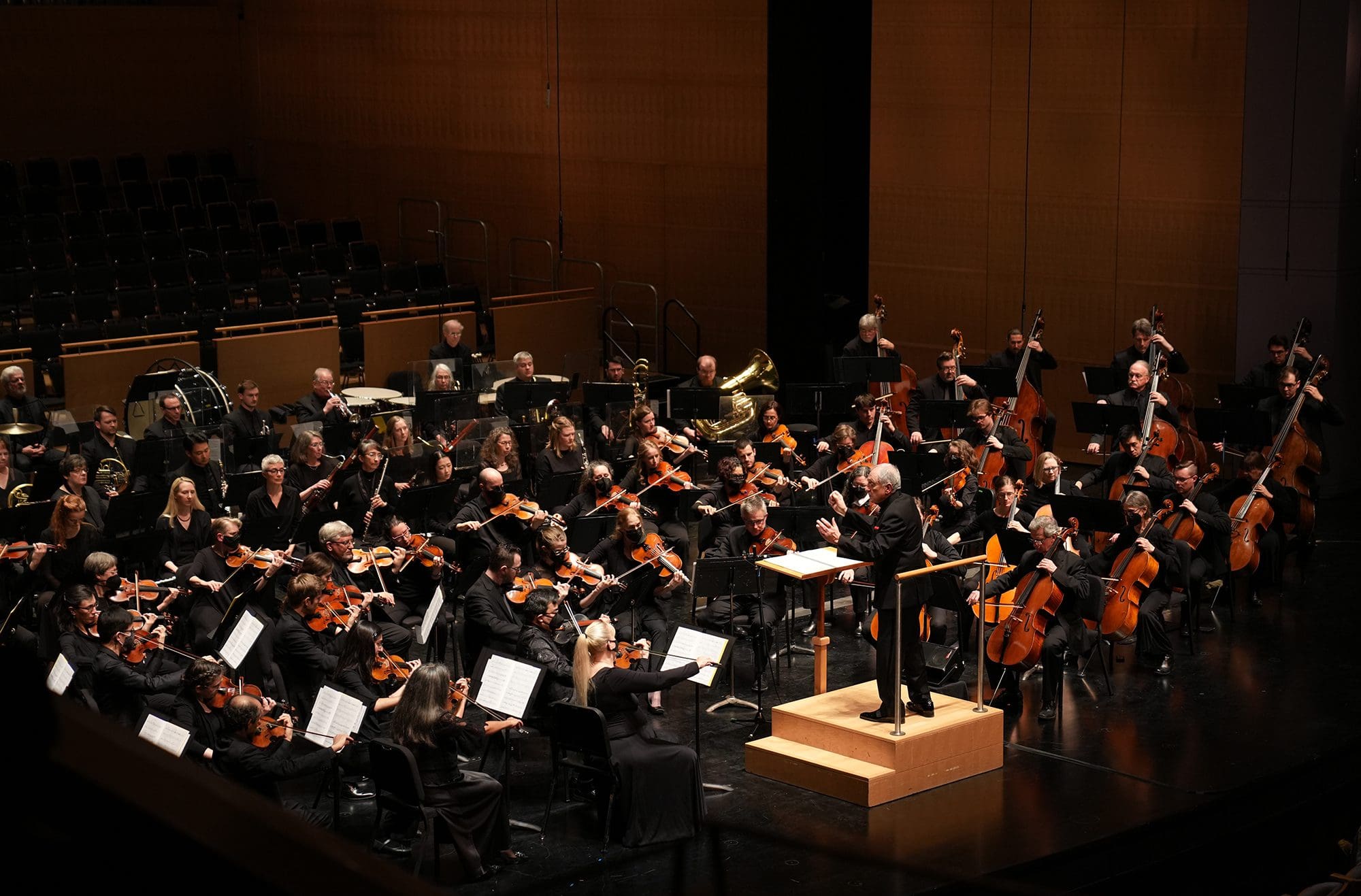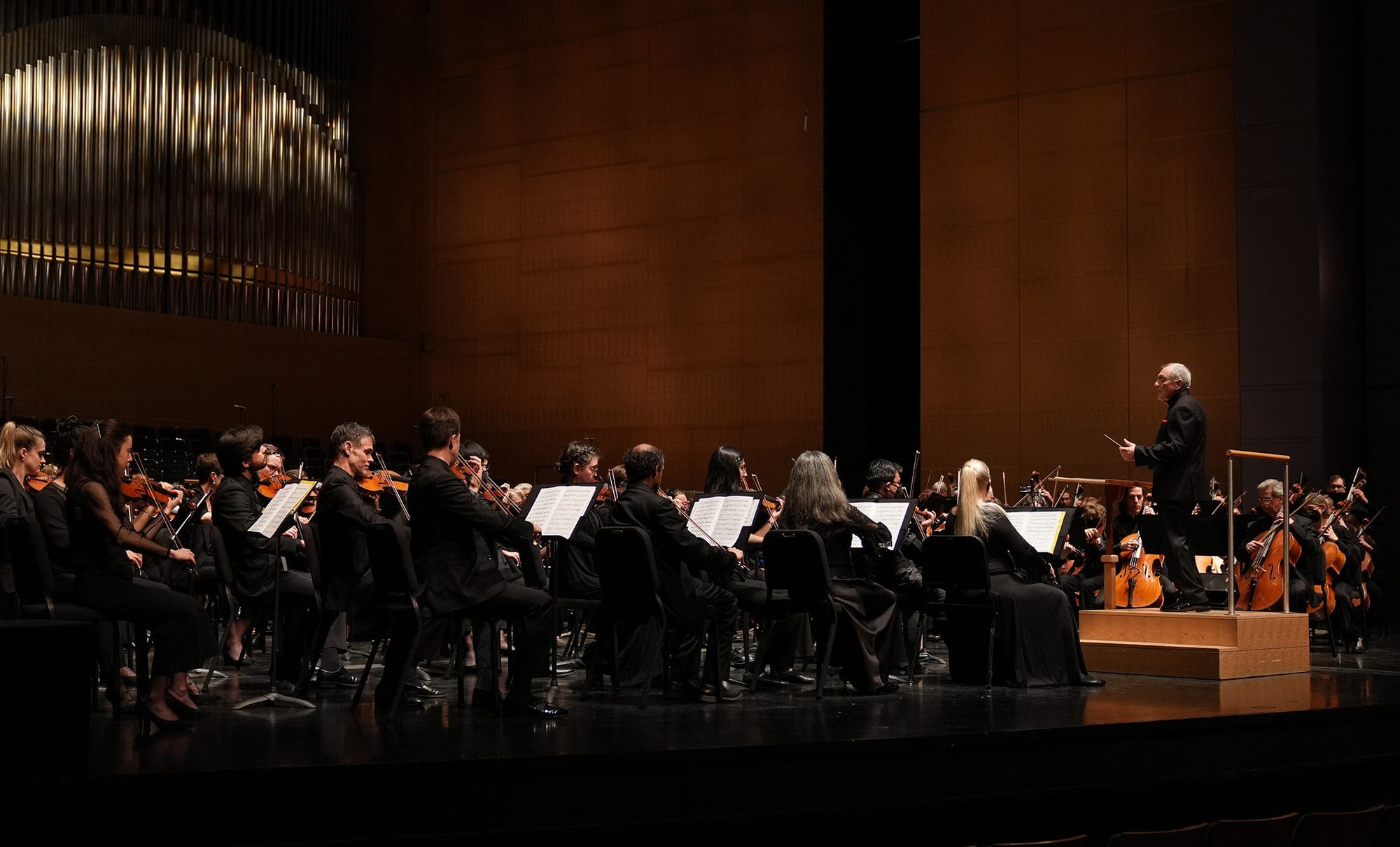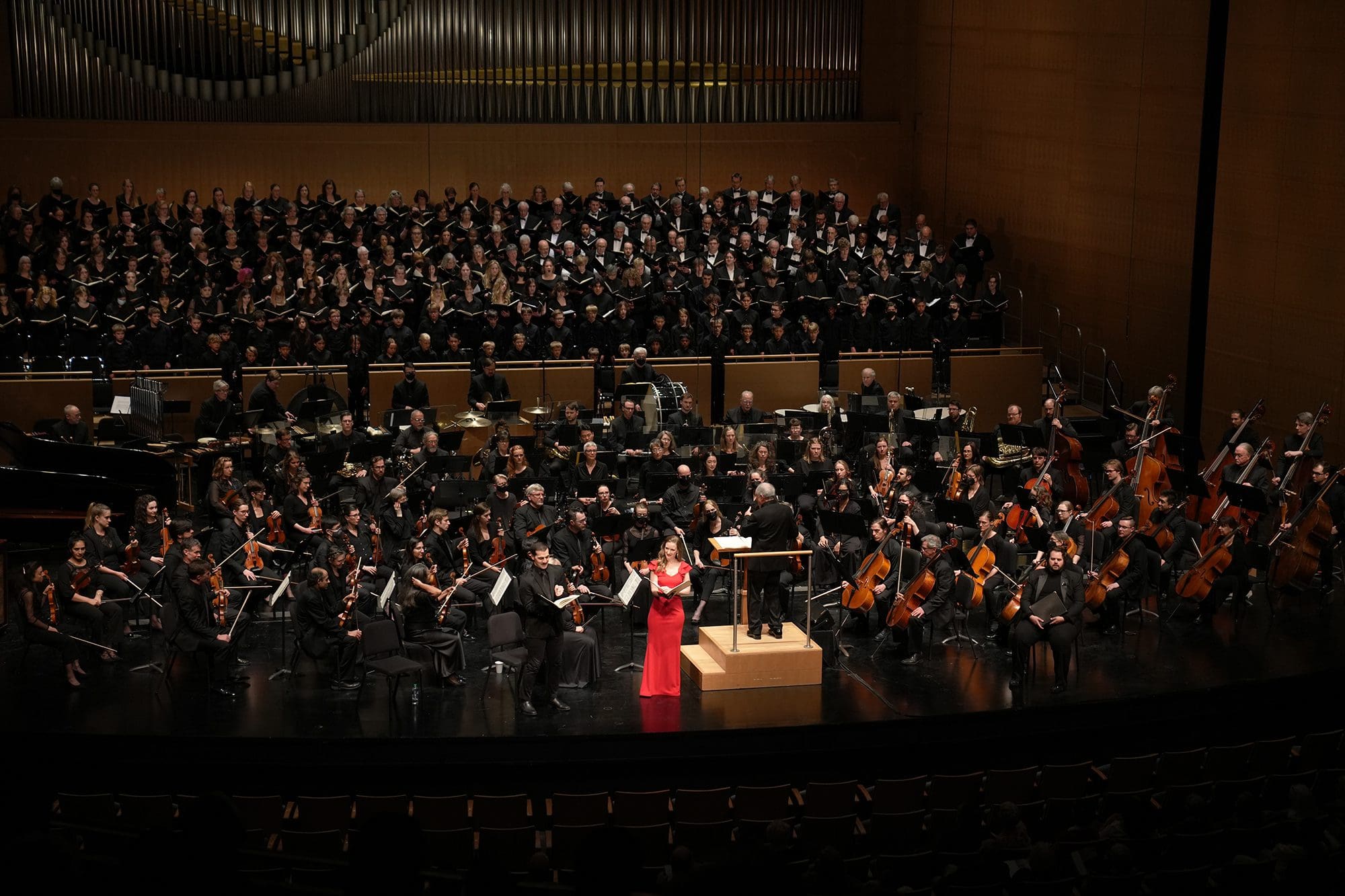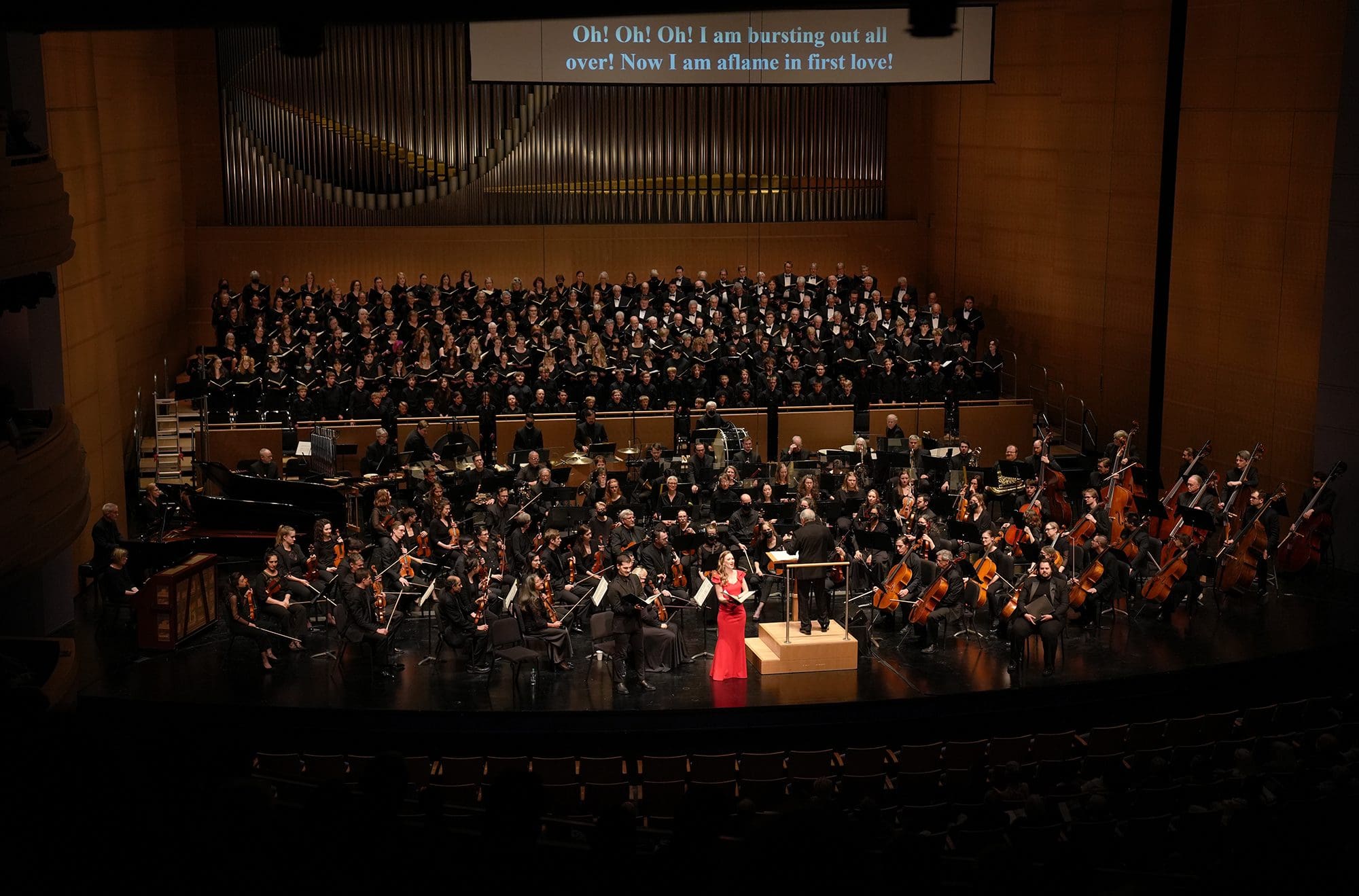The Madison Symphony Orchestra was thrilled to welcome Madison Youth Choirs, Madison Symphony Chorus, Ben Edquist, Jeni Houser and Justin Kroll to Overture Hall for our May 5, 6 and 7 concerts, Renaissance & Passion. Read reviews from the concert weekend, hear what the audience had to say, and view pictures below!
Matt Ambrosio / The Cap Times: “Madison Symphony closes stellar season with Price and Orff”
The Madison Symphony Orchestra wraps up its 2022-’23 season this weekend with an ambitious program that features two exciting works: Florence Price’s Symphony no. 3, a symphonic masterpiece, and Carl Orff’s “Carmina Burana,” a grandiose showstopper that demands a large ensemble.
On Friday night, the MSO invited to Overture Hall the Madison Symphony Chorus, the Madison Youth Choirs, and the Madison West High School Choirs, along with soloists Ben Edquist, Jeni Houser, and Justin Kroll. The sheer power of the many musicians performing together was felt from the famous opening “O Fortuna!” to the very end.
Orff considered the work a “secular cantata.” It is a collection of 25 movements, divided into three large sections, “Spring,” “In the Tavern,” and “Court of Love.” All of the work’s text come from the Codex Buranus, a collection of 12th and 13th century poetry that was uncovered in the 19th century.
The MSO performed the piece’s quick tempo changes and dynamic shifts with varied success. During long stretches of repeated eighth notes, the choir often sped up ahead of the orchestra, and during some accelerando sections, the orchestra became loose. Still the MSO established a great balance with the singers and came together for the most dramatic moments of the piece.
Entering for the third “Court of Love” section, soprano Jeni Houser took the stage in a striking red dress, perfectly appropriate for her song texts that included mention of a girl in red and a red rose. During no. 15 “Amor volat undique,” Houser unveiled a gorgeous vibrato that carried beautifully in Overture Hall and in no 21 “In truitina,” Houser mesmerized the audience with her angelic high register.
Although the soprano soloist sang arguably the most beautiful music, the baritone soloist part was the most demanding, but Ben Edquist performed expertly. He displayed great vocal range, especially in no. 16, “Dies, nox et omnia,” and proved a wonderful performer beyond his singing.
More than marking the end of the MSO’s season, this weekend’s concerts mark the final appearances of retiring principle French horn player Linda Kimball after 36 years with the ensemble. Before the second act on Friday night, Maestro John DeMain shared his appreciation for Kimball’s tenure, calling her a “positive force” and a “passionate advocate of the instrument she played.”
Bill Wineke / Madison Independent Arts Review: “MSO Season Ends With a Bang”
It was the first iconic Friday night Madison has seen for a while.
Temperatures were in the 70s and State Street was a kaleidoscope of every stereotype the city has to offer.
A religious revival was booming out over loudspeakers on the Capitol steps. Jackie and I were a couple of blocks down the street eating ice cream, so I couldn’t exactly make out what the preacher was proclaiming – but I’m pretty sure it wasn’t Lutheran.
UW-Madison students dressed in graduation robes were wandering up and down the street. A steady stream of young men on skateboards rocketed down the street, dodging buses and a fire engine. Elderly couples holding both hands and canes proceeding slowly to the Overture Center.
In the midst of all that chaos, the Madison Symphony Orchestra tuned up for its final concerts of the season.
And a pretty rousing it was, too.
There were only two pieces on the program.
A symphony by Florence Price, an African American composer who died in 1953 and whose work is just recently becoming appreciated, began the concert. MSO conductor John DeMain has been featuring the work of Black composers this year and the Price Third Symphony is a dynamic tribute to her artistry.
The second half of the program featured Carl Orff’s “Carmine Burana,” an hour-long work that includes the symphony, the Madison Symphony Chorus, Madison Youth Choirs and Madison West High School Choirs, along with soprano Jeni Houser, baritone Ben Edquist and tenor Justin Kroll.
All in all, DeMain had more than 200 musicians and singers on the stage before him
The two musical works actually fit together nicely.
Each of them emphasizes brass and percussion for more than the typical strings heavy symphony does.
While the Price symphony is frequently joyful and boisterous the Orff work is despairing and cynical – but is rarely heavy.
I could easily listen to Houser for the two hours a MSO concert typically lasts and Edquist is both witty and effective on stage. I did feel a little sorry for Kroll, who is studying to get a doctorate in musical arts at the UW-Madison, not because of his voice – which is truly wonderful – but because his part of the composition lasts only a couple of minutes but he had to sit at the front of the stage for the entire hour and not fidget.
DeMain is completing his 29th year as MSO conductor this season and he’s planning an active program next year. One thing that has been common during his first 29 years is that he ends each season not with a whimper but a bang.
The concert will be repeated tonight and Sunday afternoon.
Hear what the audience had to say…
“The Price Symphony was beautiful. The Carmina Burana performance was overwhelming! — and I think that’s the first time I’ve ever seen it performed with supertitles (which added a lot!).”
“Fantastic performance. One of, if not the best, performance we’ve seen yet in our 8 years attending. The score and power in both pre and post-intermission were wonderful.”
“Really liked learning about Ms. Price. Was completely unfamiliar with her and I was glad we heard her music.”
“Fabulous music with amazing orchestral and choral performances. The synchronization between the orchestra and chorus was outstanding. I cried when the concert ended—I wanted to hear more!! The pre-show lecture was also wonderful and certainly enriched the concert itself. Well done!”
“Well, Carmina Burana is a spectacular piece of music – joyful and compelling. It is wonderful to see the huge assembly of musicians on stage.”
“I was unfamiliar with Carmina Burana and was overjoyed with the entire breathtaking sensory experience. It was absolutely wonder FULL.”
“Jeni Houser’s fine singing, and the orchestra’s fantastic abrupt loud movement endings, along with all the people on stage performing together.”
“Inclusion of both an unfamiliar work and an “oldie but goodie” Just love Carmina Burana!!!”
“Price’s “Symphony No. 3″ was a revelation, and the Orff is always fun, especially live!”

